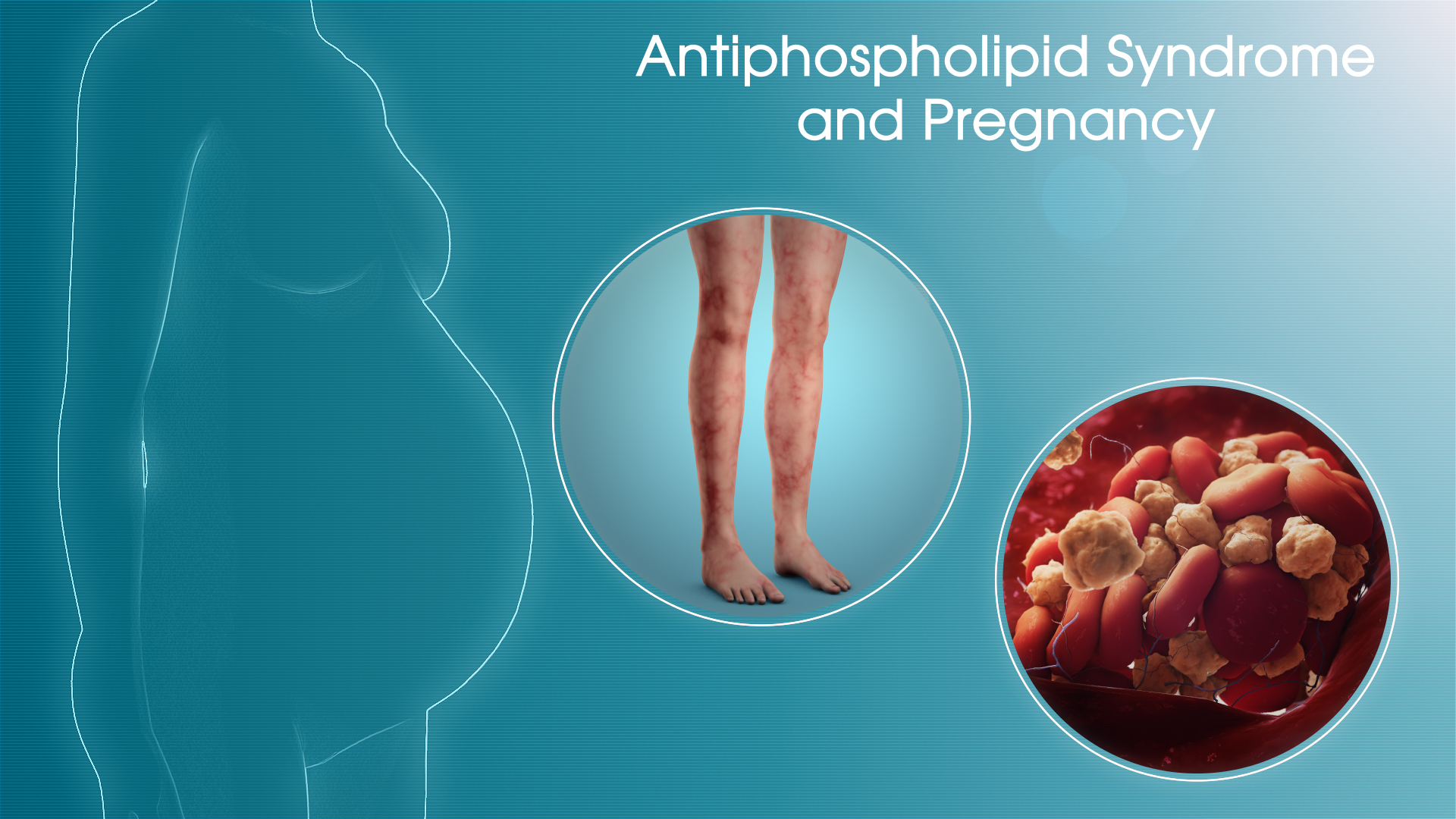Antiphospholipid syndrome (APS)
The inner surface of human cells are lined with phospholipids. Cell membrane damage due to infectious disease can sometimes release these phospholipid molecules. Antiphospholipids are produced as immune response which also results in an increased rate of blood clotting and blood thickening. Antiphospholipid syndrome (APS) results from an overactive immune response post an infectious disease.
Antiphospholipid syndrome, also called Hughes syndrome or sticky blood syndrome, is associated with vascular thrombosis (clot formation in blood vessels) that may manifest in multiple ways in the heart, skin and central nervous system. APS can also lead to multiple miscarriages in pregnant women.

Women diagnosed with APS have about a 70% chance of a successful pregnancy when treated with low-dose, anticoagulant (aspirin/heparin) injections. Although this treatment improves pregnancy outcomes, there is still increased risk of third-trimester complications due to inadequate blood flow through the placenta. For this reason, APS is a well known cause of later miscarriages. However, doctors are still unsure of the role that antiphospholipid antibodies might play in early miscarriage.
Some researchers believe that the syndrome interferes with the fertilized egg’s ability to implant in the uterus lining. Also, HELLP syndrome (hemolysis, elevated liver enzymes and low platelets) seems to occur earlier than in women without APS, often in the second trimester. This syndrome is often associated with eclampsia.
The diagnostic criteria for APS suggest that evaluation should begin after the third consecutive early miscarriage, defined by less than 10 weeks of gestation. However, in practice, evaluation after two early miscarriages is often initiated at the discretion of the physician.
Pathogenesis of APS and its impact on pregnancy
In a European referral center cohort of 1,000 patients with APS (many of whom had a connective tissue disease), 188 pregnancies were documented over 10 years. Among patients in this group, early pregnancy loss (16.5%), intrauterine growth restriction (26.3%), and prematurity (48.2%) were common. A systematic review found that lupus anticoagulant was associated with preeclampsia, intrauterine growth restriction, and late fetal loss.
Obstetrical APS, a complex entity that may affect both mother and fetus throughout the entire pregnancy with high morbidity, projects similar (but more severe) clinical complications ranging from fetal losses, stillbirth, intrauterine growth restriction (IUGR), and preeclampsia. It is believed that antiphospholipids directly attack the trophoblast cells of the developing fetus.
Treatment
Medicine can help reduce the risk for blood clots, but they can still happen. First-line treatment is usually limited to a combination of low-dose aspirin (LDA) and low-molecular weight heparin (LMWH). With respect to the pathophysiology of APS, heparin is the logical drug of choice, as besides having an anticoagulant effect, it performs both anticomplement and anti-inflammatory actions.
Conclusion
Despite the heterogeneity of this syndrome and, hence, the lack of consensus regarding standard treatment, new therapeutics are still in progress, and the current management of the abnormality has significantly improved outcomes for many women.
APS pregnancies should be a major field in obstetrical research. Early prenatal care from an experienced healthcare provider can increase chances of a healthy pregnancy.
Disclaimer: The information in no way constitutes, or should be construed as medical advice. Nor is the above article an endorsement of any research findings discussed in the article an endorsement for any of the source publications.

Acetaminophen: Pregnancy Caution?
There’s no perfect data to study the medication use in pregnancy and their effects on the fetus. FDA links 980 deaths per year in the U.S. to acetaminophen. Read More..








